Louis Gossett Jr., 1936-2024
A legendary actor is gone at 87.
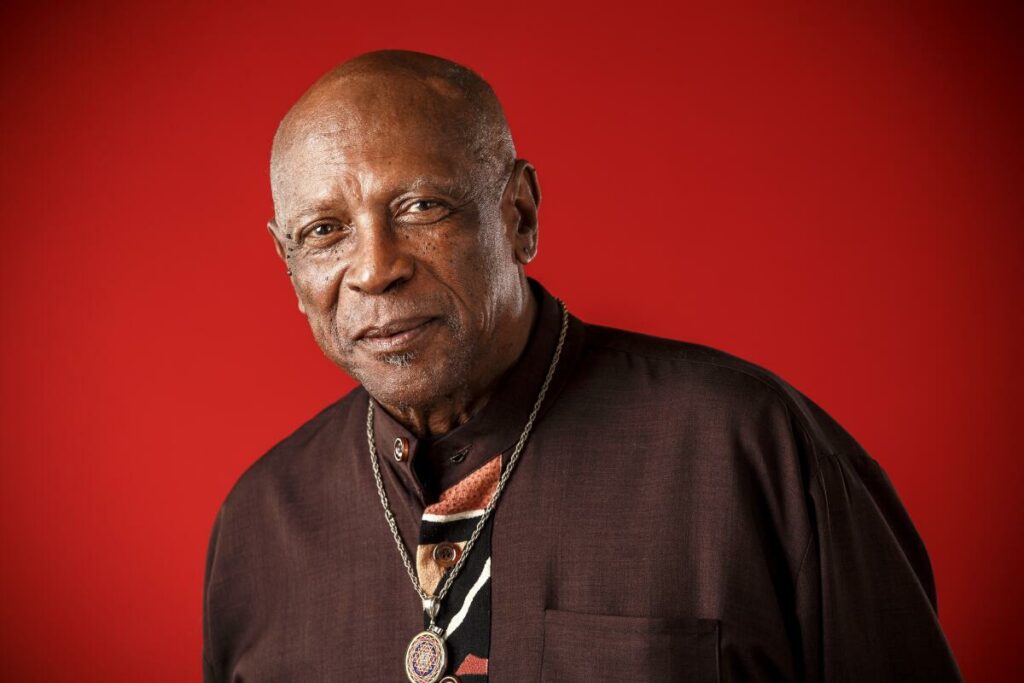
New York Times, “Louis Gossett Jr., 87, Dies; ‘An Officer and a Gentleman’ and ‘Roots’ Actor“
Louis Gossett Jr., who took home an Academy Award for “An Officer and a Gentleman” and an Emmy for “Roots,” both times playing a mature man who guides a younger one taking on a new role — but in drastically different circumstances — died early Friday in Santa Monica, Calif. He was 87.
Mr. Gossett’s first cousin Neal L. Gossett confirmed the death. He did not specify a cause.
Mr. Gossett was 46 when he played Emil Foley, the Marine drill instructor from hell who ultimately shapes the humanity of an emotionally damaged young Naval aviation recruit (Richard Gere) in “An Officer and a Gentleman” (1982). Reviewing the movie in The New York Times, Vincent Canby described Sergeant Foley as a cruel taskmaster “recycled as a man of recognizable cunning, dedication and humor” revealed in “the kind of performance that wins awards.”
Mr. Gossett told The Times that he had recognized the role’s worth immediately. “The words just tasted good,” he recalled.
When he accepted the Oscar for best supporting actor in 1983, he was the first Black performer to win in that category — and only the third (after Hattie McDaniel and Sidney Poitier) to win an Academy Award for acting.
Mr. Gossett, a versatile actor, played a range of parts in his long career. But he was best known for playing decent, plain-spoken men, often authority figures.
By the time he won his Oscar, he had already won an Emmy as Fiddler, the mentor of the lead character, Kunta Kinte (LeVar Burton), in the blockbuster 1977 mini-series “Roots.”
Fiddler was, as the name suggested, a musician, an enslaved man on an 18th-century Virginia plantation. Mr. Gossett was not thrilled about the role at first. “Why choose me to play the Uncle Tom?” he remembered thinking in a 2018 Television Academy video interview. But he came to admire the survival skills of forebears like Fiddler, he said, and based the character on his grandparents and a great-grandmother.
Washington Post, “Louis Gossett Jr., commanding actor of TV and film, dies at 87“
Louis Gossett Jr., an actor who brought authority to hundreds of screen roles, winning an Oscar as a Marine drill instructor in “An Officer and a Gentleman” and an Emmy Award as a wise, older guide to the enslaved Kunta Kinte in the groundbreaking miniseries “Roots,” died March 29 at a rehabilitation center in Santa Monica, Calif. He was 87.
[…]
In a career spanning nearly seven decades, Mr. Gossett became one of the most recognizable actors of his generation. With his gleaming shaved skull and the sinewy 6-foot-3 physique of a former college basketball player, he brimmed with magnetism.
In his drive to shatter boundaries as an African American performer, he worked on Broadway and other stages starting in the 1950s and appeared in dramas such as Lorraine Hansberry’s landmark “A Raisin in the Sun,” Jean Genet’s anti-colonialism play “The Blacks” and Conor Cruise O’Brien’s “Murderous Angels,” in the last as the ill-fated Congolese independence leader Patrice Lumumba.
He seemed poised for greater success after winning an Emmy for “Roots” in 1977 and the supporting actor Oscar for “An Officer and a Gentleman” in 1983. He was the first Black actor to receive an Academy Award since Sidney Poitier’s win in 1963 for his performance in “Lilies of the Field.” But despite Mr. Gossett’s widely acknowledged range, he found himself largely excluded from prestigious and lucrative film roles.
“I thought I’d get a lot of offers — and they didn’t come,” he told the New York Times in 1989. Several factors were at work, he later said. One was age: He was in his mid-40s, putting him at a competitive disadvantage when competing for leading parts, especially when people of color had fewer opportunities in general. Another, he said, was the difficulty of pursuing a career while raising a young son as a divorced single father.
The pressures and disappointments became so great, he said, that he sank into depression and became addicted to cocaine and alcohol. Mr. Gossett’s reputation plummeted after a former wife alleged during a custody battle in 1982 that their son was spoon-fed “white powder” by one of Mr. Gossett’s girlfriends. Criminal charges were dropped for lack of evidence, and Mr. Gossett retained custody, but the damage seemed insurmountable.
In a memoir, “An Actor and a Gentleman,” Mr. Gossett wrote that White actors “were able to overcome worse predicaments with drugs and alcohol and self-destructive acts.” He added: “For them, there was a hope of redemption and an even more successful career at the end of treatment, the drug problem only adding to the allure. But for a black man who was supposed to ‘mind his manners,’ the drugs were a permanent blemish. For me, the road was too narrow to have room to fool around.”
[…]
Even as an established name, he said he was told by White directors that he wasn’t acting “Black enough” or that he needed to “use those Black phrases.”
“There were times I wanted to quit altogether,” he told the Times in 1989. “Our employment was basically fulfilling Hollywood’s stereotypes about blacks, and the whole mocking mentality of the crews — well, I wanted to leave the business.” Instead, he added, he kept “trying to find some dignity in those parts. But I carried a hot ball in my stomach for a lot of years.”
Los Angeles Times, “Louis Gossett Jr., ‘An Officer and a Gentleman’ star who broke barriers in Hollywood, dies“
Lou Gossett Jr. was still a teen, fresh off a successful Broadway run, when he landed at LAX and headed to Beverly Hills in a cherry red Ford Fairlane, feeling on top of the world.
He didn’t get far before the cops pulled him over, saying he matched a description of someone they were looking for. A few miles later, it happened again. And then again. By the time he got to the Beverly Hills Hotel, a squad car rolled up and the officers handcuffed Gossett to a tree as they tried to figure out what a young Black man was doing in town.
“Welcome to Hollywood,” the Oscar-winning actor wrote years later in his memoir, “An Actor and a Gentleman,” recounting his inaugural trip to L.A. in 1967. “Welcome to reality.”
For Gossett, it was just another painful reminder that as a Black actor, no matter the awards, no matter the acclaim, the barriers would always be high, the odds always long.
“I had to act as if I was second class. I had to behave myself,” he told The Times in 2008. “The only time I was really free was when the director said ‘action’ in front of a camera or on the stage and that’s when I flew.”
Forever remembered for his career-defining roles in “An Officer and a Gentleman” and the influential television miniseries “Roots,” Gossett died Thursday night in Santa Monica,his nephew told the Associated Press. No cause of death was revealed. He was 87.
Much like Jesse Jackson or Andrew Young’s lifelong devotion to the civil rights movement, Gossett had been present for many of the iconic moments of Black theater, film and television over the last half century.
He appeared with Sidney Poitier in “A Raisin in the Sun” in 1961, when racial stereotyping in the movies was still in full bloom. He won an Emmy as a slave named Fiddler in “Roots” in 1977 as ABC fretted whether the series should even be shown in the Deep South. And when an Academy Award for his role as the steely, no-nonsense drill sergeant in “An Officer and a Gentleman” failed to turn on the spigot for more meaningful roles, Gossett masked his anger with drugs and alcohol and then rescued himself with activism.
Louis Cameron Gossett Jr. was born May 27, 1936, and raised in Sheepshead Bay, N.Y., not far from Coney Island. His mother, Hellen, was a nurse and his father, Louis Sr., a porter. He aspired to be a basketball player but thought it might be best to study medicine, in part so his mother could proudly introduce him as “my son, the doctor.”
At 17, a high school English teacher pulled Gossett aside and told him there was a theater company looking for a young Black actor. With little to no acting experience, Gossett auditioned and won the role in “Take a Giant Step,” a coming-of-age story that opened on Broadway.
“I knew nothing about acting,” he told NPR in 2010. “I had never even seen a play.”
A 6-1 point guard, Gossett tried out with the New York Knicks when he was a student at New York University but put basketball and school aside when acting roles kept rolling in. By the time he was 23, he was starring alongside Poitier in “A Raisin in the Sun,” first on Broadway and then on film. He also appeared opposite James Earl Jones and Cicely Tyson in “The Blacks,” an off-Broadway production with an all-Black cast that ran for 1,408 performances.
But by the late ’60s, he was living in L.A. and struggling to find work. He turned to songwriting and handed off one of his songs, “Handsome Johnny,” to musician Richie Havens, who recorded the antiwar song for his 1966 album, “Mixed Bag,” and later performed it at Woodstock. Gossett said the song ended up saving him from eviction, an $11,750 royalty check arriving just as movers were prepping to haul out his furniture.
“Roots,” the sweeping story of a Black family’s struggles from enslavement to post-Civil War life, changed careers and attitudes in Hollywood with its success and powerful story line. For Gossett, however, it felt all too familiar.
“I was raised an only child but I was also raised with 25 or 30 cousins,” he told The Times in 1996. “My grandparents and aunts would take care of all the kids when our parents were working, and in the summertime, we’d all ship south to the farms in South Carolina or Georgia.”
Gossett knew as soon as he saw the script that playing military taskmaster Emil Foley in 1982’s “An Officer and a Gentleman” was a special opportunity. While Richard Gere, Debra Winger and the other stars stayed in Port Townsend on the Olympic Peninsula, Gossett bunked with a company of Marines miles from the set.
“They put the steel in my butt, so that when I’d walk on the set and shout, ‘Get down and give me 50’ to the cast, by God, they’d do it.”
The performance earned Gossett a supporting actor Oscar, making him the first Black actor to win that category. Hattie McDaniel was the first Black actor to win an Oscar when she received the supporting actress award in 1940 for her role in “Gone With the Wind.” Poitier was the first Black performer to win the Oscar for lead actor for his role in “Lilies of the Field” in 1964.
Gossett thought the award would cement him as a go-to lead actor just as it had for his idol, Poitier. He asked his agent to seek out opportunities to play district attorneys, physicians, police chiefs and family-involved fathers. “Anything but those stereotypes reserved for Black actors,” he said during an interview with the Television Academy Foundation.
He seethed when plum roles failed to arrive and was forced to follow “An Officer and a Gentleman” with a role in “Jaws 3-D,” a second sequel to Steven Spielberg’s blockbuster.
He turned to cocaine and alcohol to numb his disappointment and watched his marriage crumble. After undergoing treatment for drug and alcohol abuse, Gossett threw himself into working with inner-city charities and formed his own, Eracism Foundation, an L.A.-based nonprofit devoted to “the removal from existence of the belief that one race, one culture, one people is superior to another.”
Variety, “Louis Gossett Jr., ‘An Officer and a Gentleman’ Oscar Winner, Dies at 87“
Louis Gossett Jr., who won a supporting actor Oscar for playing the hard-as-nails drill instructor in 1982’s “An Officer and a Gentleman” a few years after winning an Emmy for his role as the cunning Fiddler in “Roots,” died early Friday morning. He was 87.
[…]
After his Emmy win for “Roots” in 1978, Gossett picked up a further six Emmy nominations over the years. He drew a nomination for portraying the Egyptian president who made peace with Israel in the 1983 TV movie “Sadat.” He was also nominated for his performance on the 1978 variety special “The Sentry Collection Presents Ben Vereen: His Roots”; for playing Levi Mercer in the 1979 NBC miniseries “Backstairs at the White House”; for lead actor in a drama series for “Palmerstown, U.S.A.” in 1981; for lead actor in a miniseries or special for the Volker Schlondorff-directed “A Gathering of Old Men” (1987), in which he starred with Richard Widmark and Holly Hunter; and for multiple appearances as Anderson Walker on CBS’ “Touched by an Angel” in 1997.
Gossett, still hard working in his late 70s, memorably guested on HBO’s “Boardwalk Empire” in 2013, playing a mentor to Michael Kenneth Williams’ Chalky whom Chalky re-encounters when he is on the run.
He had also recently recurred on CBS’ Halle Berry sci-fi thriller “Extant” as Quinn and guested on series including “Madam Secretary” (2014), “Psych” (2012) and “ER” (2009) as well as on IFC’s miniseries spoof “The Spoils Before Dying” (2015).
[…]
Asked by Variety in 2015 which of his roles has been his favorite, Gossett responded: “Anwar Sadat. It was a challenge to play someone with history like that. His spirit was very much like Mandela’s. He transitioned from a hawk to a dove. He’d lost his brother and people he loved. He said he’d be willing to step into Israel in the name of peace. Mandela was willing to come out of prison with a smile on his face.”
[…]
Gossett had already made his Broadway debut, in 1953, despite no formal training as an actor, replacing Bill Gunn as Spencer Scott in “Take a Giant Step,” which the New York Times’ drama critics named one of the 10 best shows of the year. He drew his first mention in Variety for his work in the play.
Other Broadway credits include the classic original 1959-60 production of “A Raisin in the Sun,” in which he played George Murchison, the wealthy and educated boyfriend of Younger family daughter Beneatha; George, who denies his African heritage, represents the fully assimilated Black man. Gossett made his big-screen debut when he reprised the role for the 1961 film version of “A Raisin in the Sun.” (Earlier he had had a smaller role in the original comedy “The Desk Set,” which luckily was also a big hit.)
In 1963 he appeared on the Rialto in the Langston Hughes adaptation “Tambourines to Glory,” and he was a replacement in the controversial hit musical “Golden Boy” starring Sammy Davis Jr. in which Gossett played the Mephistophlean boxing promoter Eddie Satin. He was also among the stars of original musical “The Zulu and the Zayda,” about a Jew and a Black man bridging the racial gap in Johannesburg.
In 1968 Gossett starred with Diane Ladd among others in the Sidney Poitier-directed play “Carry Me Back to Morningside Heights,” and the actor played assassinated African leader Patrice Lumumba in the play “Murderous Angels” in 1971.
Decades later, in 2002, Gossett returned to Broadway to serve as replacement in the starring role of Billy Flynn in the musical “Chicago.”
As one of the program’s executive producers, Gossett shared a Daytime Emmy for outstanding children’s special for 1997’s “In His Father’s Shoes,” for which he was also nominated for outstanding performer in a children’s special. He played a cancer-stricken man who shares a magical experience with his son.
He also shared a nomination for outstanding special class special for the 2002 Opening Ceremony of the Salt Lake Paralympic Winter Games, for which he served as narrator.
Later in his career, Gossett continued taking roles across television and film. He had a seven-episode arc in the acclaimed HBO miniseries “Watchmen” and had a leading role in the 2020 religious drama “The Reason.” He also appeared in the 2023 remake of “The Color Purple.”
Like seemingly everybody, his role in “An Officer and a Gentleman” is the one for which I most remember him. I also enjoyed the “Iron Eagle” flicks, although that’s likely just a reflection of where I was at that time in my life.
What a long and prolific career. It’s sad that he endured so much racism early in his time in Hollywood and felt slighted in the years after his Oscar win. It’s unknowable how much of that was racial stereotyping and how much was typecasting after such a memorable role. (Although it’s noteworthy that the drug charge that seemed “insurmountable” was a year before his most memorable role.) Happily, he seems to have become more satisfied with his stature and the appreciation he garnered later in life.

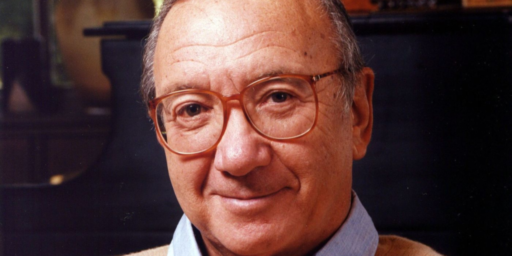
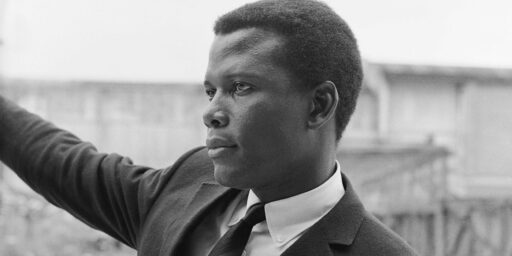
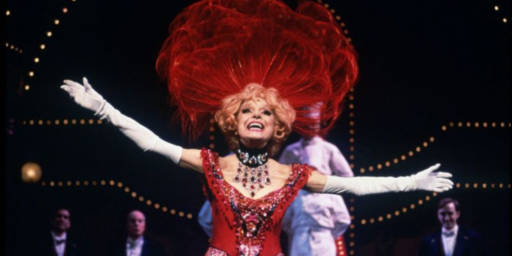
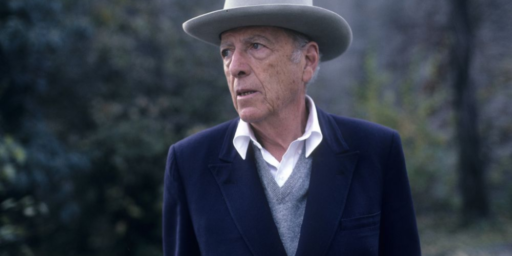

I was fortunate enough to work with Mr. Gossett on Season 3 of “Hap and Leonard”. He was professional, gregarious, generous, and very, very, very nice. It was a pleasure. Michael Kenneth Williams (RIP) idolized Mr. Gossett, and getting to see those two amazing actors work opposite each other was one of the great honors of my professional life.
@EddieInCA:
Very versatile. Gossett really could play any part and carry it off beautifully. I always thought that if he was one of the actors in a movie or tv show, it must be worth watching.
@CSK:
He’s one of those old school actors, like Christopher Walken, Willem Dafoe, Lance Reddick, Clancy Brown, and several others, who, regardless of the type, size, or prestige of the project, give it 100% every time and don’t ever cheat the audience.
@EddieInCA:
Add Michael Caine and Sidney Poitier to that list.
I’m probably the only person on earth who remembers him best for his role in Enemy Mine — but then I’ve always been an SF geek.
(Yes, I did also see and admire his performances in An Officer and a Gentleman and in Roots…)
Another legend lost. RIP